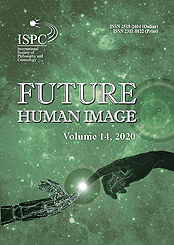Is the Human Mind Able to Maintain its Independence in the Contemporary World?
Is the Human Mind Able to Maintain its Independence in the Contemporary World?
Author(s): Tetiana TrushSubject(s): Philosophy, Ethics / Practical Philosophy, Early Modern Philosophy
Published by: Международное философско-космологическое общество
Keywords: history of philosophy; method; theory; Ukrainian philosophy; Spinoza; mind; intellect; freedom; manipulation;
Summary/Abstract: The “Theological-political treatise” by Spinoza has become an impact for this article. In theХХ chapter of the given treatise, the author says that another one cannot influence the mind of one person or many people for an indefinite period. But taking into account those traditions, which now prevail in the contemporary world, this thought raises more doubt. The modern world is becoming extremely complicated. Advertising and computer technologies are being improved at a frantic pace every day.A human thought just has to be steered on the right course, and a person will buy what an advertiser needs. Advertising on TV, outdoor advertising, advertisements on Facebook, Instagram, Messenger,newspapers, various presentations — all these are becoming a powerful source of influence on human consciousness. Day and night, there is a struggle for people’s minds. It turns out that every day a person is under a destructive information attack. The question therefore arises: is the human mind able to maintain its independence in thoughts and actions? Are there any means that would help a person avoid outside influence on their own thoughts? Or, perhaps in the modern world, there is no guarantee of freedom, security, and independence of human consciousness? In this article, I will try to find the answer to the questions raised.
Journal: Future Human Image
- Issue Year: 2020
- Issue No: 14
- Page Range: 81-89
- Page Count: 9
- Language: English

